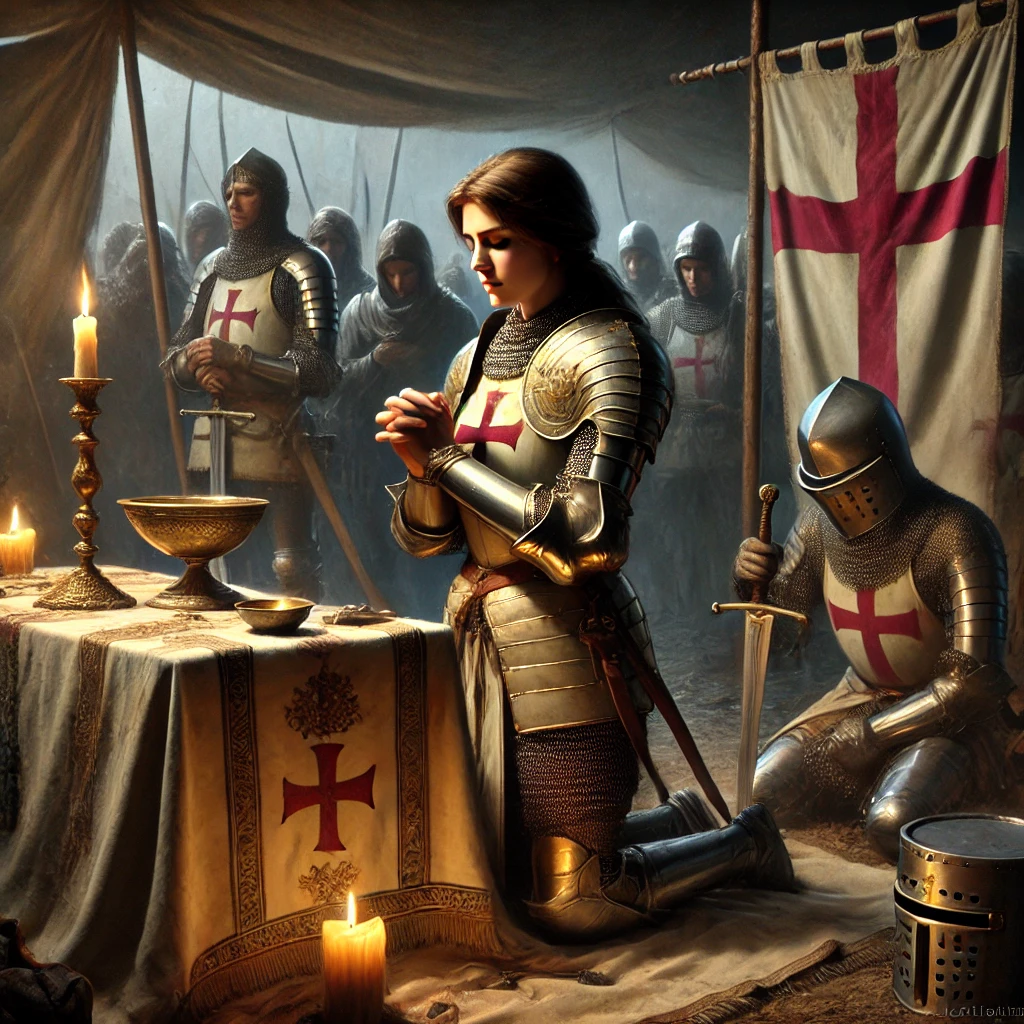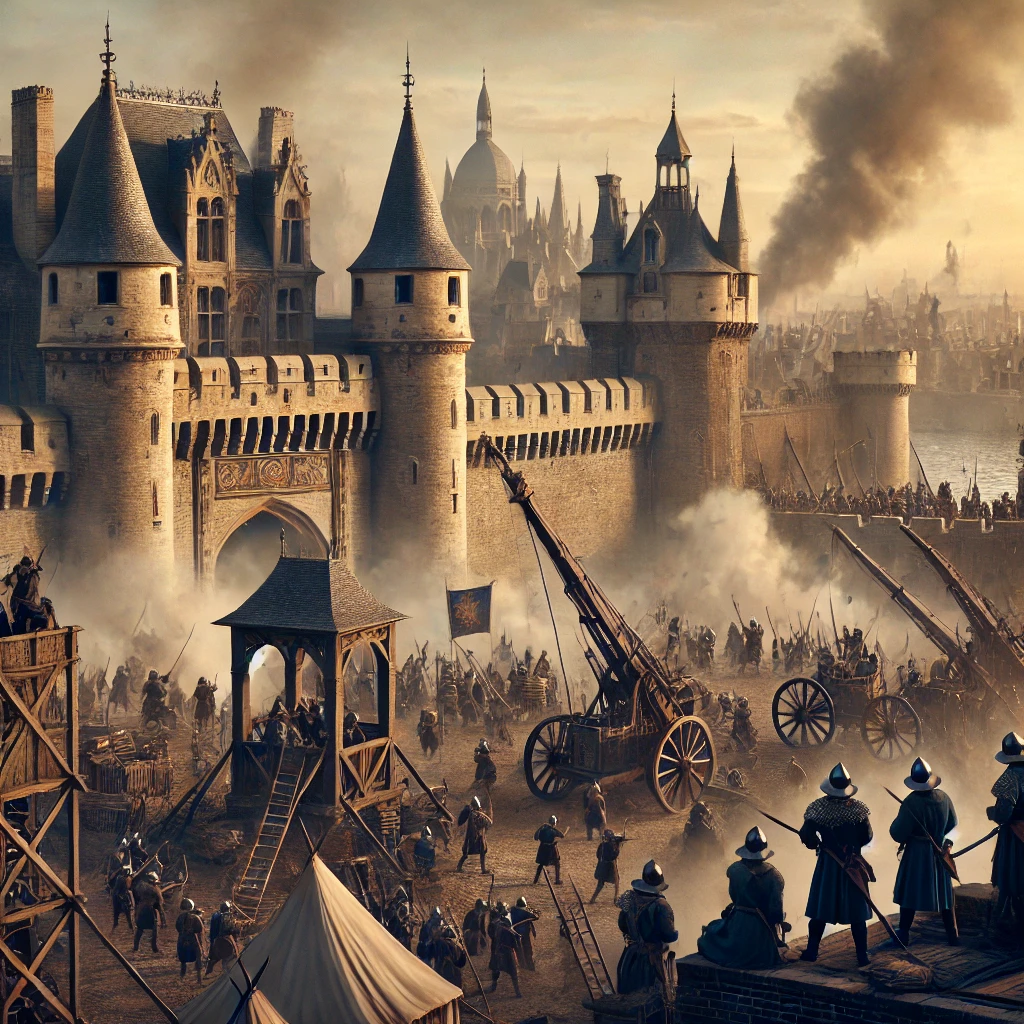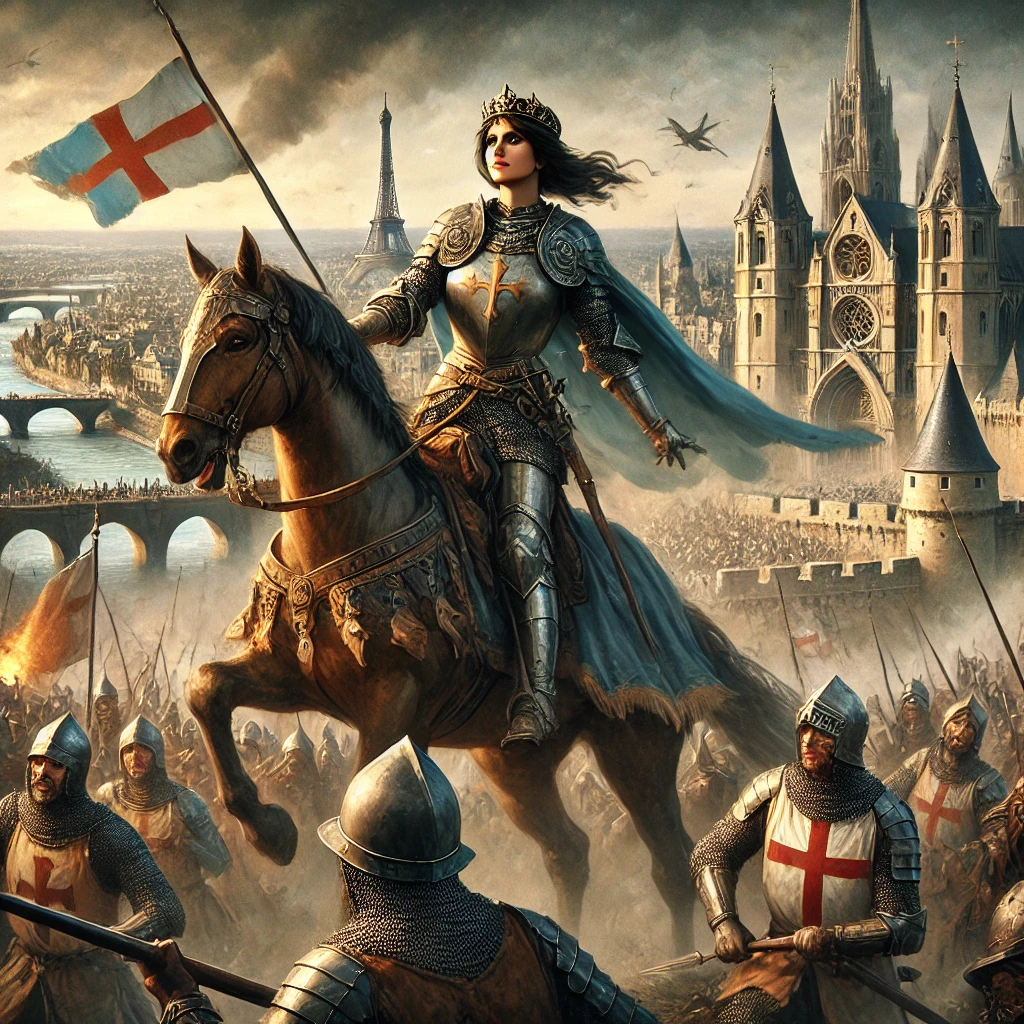On September 8th, 1429, French heroine Joan of Arc, a peasant girl who believed she was acting under divine guidance, led a bold attempt to oust the Duke of Burgundy and capture Paris for the newly crowned King Charles VII. This event marked a significant moment in the Hundred Years’ War, a protracted conflict between England and France over control of the French throne. Joan’s efforts were part of a broader campaign to restore French sovereignty and end English domination in France.
The Hundred Years’ War, which began in 1337, had seen numerous battles and shifting alliances. By the early 15th century, much of northern France was under English control, and Paris was in the hands of the Burgundians, allies of the English. The war had left France divided and weakened, with the French crown struggling to assert its authority. In this context, Joan of Arc emerged as a symbol of hope and resistance for the beleaguered French.
Joan of Arc: A Divinely Inspired Leader
Joan of Arc, born around 1412 in the village of Domrémy, was an unlikely leader. A peasant girl with no formal education, Joan claimed to have received visions from saints instructing her to support Charles VII and help drive the English out of France. Her conviction and piety impressed those around her, and despite initial skepticism, she was eventually given command of a small army by Charles VII.
Joan’s leadership proved to be a turning point in the war. In May 1429, she led French forces to a decisive victory at the Siege of Orléans, lifting the English siege that had threatened one of France’s most important cities. This victory boosted French morale and solidified Joan’s reputation as a divinely inspired warrior. Following the triumph at Orléans, Joan played a crucial role in the subsequent campaigns that led to Charles VII’s coronation as King of France in July 1429.

The Campaign to Take Paris
With Charles VII crowned as king, Joan of Arc turned her attention to Paris, which was still under Burgundian control. The capture of Paris was seen as essential to solidifying Charles’s rule and reclaiming France from English and Burgundian forces. On September 8th, 1429, Joan led an assault on the city’s gates, determined to bring Paris under French control.
The attack on Paris was a bold and ambitious move, but it was fraught with difficulties. The city was heavily fortified, and the Burgundian defenders were well-prepared. Despite Joan’s courage and determination, the French forces were unable to breach the city’s defenses. Joan herself was wounded in the leg by an arrow during the assault, but she refused to retreat, continuing to rally her troops even as the attack faltered.
The Aftermath of the Failed Assault
The failure to capture Paris was a significant setback for Joan of Arc and the French cause. Despite the momentum gained from previous victories, the inability to take the capital highlighted the challenges that still lay ahead for Charles VII and his supporters. The unsuccessful assault also strained Joan’s relationship with the French court, where some began to question her judgment and the wisdom of her military strategy.
In the weeks following the failed assault on Paris, Joan’s influence at the French court began to wane. Charles VII, seeking to consolidate his position, became more cautious in his military approach and less willing to rely on Joan’s counsel. By the end of 1429, Joan was effectively sidelined, and her role in the French military campaigns was significantly reduced.
Joan of Arc’s Capture and Execution
Joan’s fortunes continued to decline after the failed assault on Paris. In May 1430, she was captured by Burgundian forces during a skirmish near Compiègne. Her capture was a devastating blow to the French cause, and she was soon handed over to the English, who saw her as a dangerous symbol of French resistance.
In a trial orchestrated by the English and their allies, Joan was accused of heresy, witchcraft, and insubordination. Despite her steadfast defense and unwavering faith, she was found guilty and sentenced to death. On May 30th, 1431, Joan of Arc was burned at the stake in the city of Rouen. Her execution was intended to discredit her and demoralize the French, but instead, it solidified her status as a martyr and a symbol of French nationalism.

Joan of Arc’s Legacy in French History
Although Joan of Arc’s attempt to capture Paris ended in failure, her impact on French history was profound. Her leadership and victories provided a crucial boost to French morale at a time when the country was on the brink of collapse. Joan’s efforts helped to galvanize the French resistance, leading to a series of successes that eventually turned the tide of the Hundred Years’ War in favor of the French.
In the years following her death, Joan of Arc’s reputation grew, and she became a symbol of French unity and resilience. In 1456, a posthumous retrial cleared her of all charges, and she was declared a martyr by the Catholic Church. Joan’s legacy continued to inspire generations of French people, and in 1920, she was canonized as a saint.
The Significance of September 8th, 1429
The events of September 8th, 1429, when Joan of Arc attempted to take Paris, are a testament to her courage and determination. Despite the ultimate failure of the assault, Joan’s actions that day demonstrated her unwavering commitment to the cause of French independence and her belief in the divine mission she had been given.
Joan of Arc’s attempt to capture Paris may not have achieved its immediate goal, but it remains a significant chapter in the story of the Hundred Years’ War. Her bravery in the face of overwhelming odds continues to be celebrated as one of the defining moments in French history.

A Lasting Legacy
Joan of Arc’s legacy as a national heroine, saint, and symbol of French patriotism endures to this day. Her life and actions during the Hundred Years’ War have been the subject of countless books, films, and works of art, ensuring that her story remains a central part of French cultural identity.
The failed attempt to capture Paris on September 8th, 1429, was a moment of both triumph and tragedy in Joan of Arc’s extraordinary life. It highlighted the challenges and complexities of war, as well as the remarkable strength and resilience of a young woman who believed she was destined to change the course of history.
